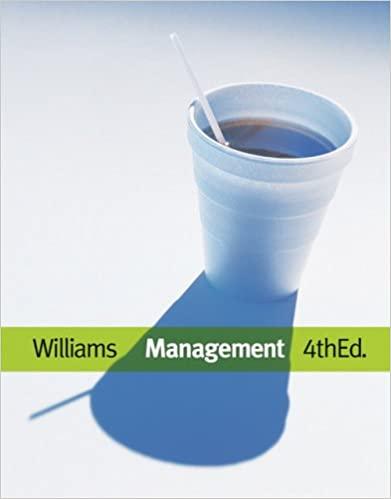Question
On April 20, 2010, BP's mobile offshore drilling rig the Deepwater Horizon exploded in the Gulf of Mexico, killing 11 employees and injuring 17 others.
On April 20, 2010, BP's mobile offshore drilling rig the Deepwater Horizon exploded in the Gulf of Mexico, killing 11 employees and injuring 17 others. After the rig sank two days later, 206 million gallons of crude oil spilled into the ocean for months, producing the largest off-shore oil spill in U.S. history and creating an environmental disaster. The morning the Deepwater Horizon oil rig, owned byTransocean, exploded, a BP executive and aTransocean official had argued over the next procedure. The BP official wanted heavy mud, used to keep the well's pressure at safe levels, replaced with lighter seawater to speed up a process that was costing BP an estimated S750,000 a day and already running five weeks late. Doug Brown, the rig's chief mechanic, says that the BP executive won the argument and "basically said, 'Well, this is how it's gonna be. Because engineers were hurrying to reduce the delay and expense they had also cut corners on the well design, safety features, and safety tests. During the subsequent investigation of the explosion, in a letter to BP's then-CEOTony Hay-ward, House Energy and Commerce Committee wrote, Time after time, it appears that BP made decisions that increased the risk of a blowout to save the company time and expense. A Fortune magazine investigation determined that the disaster was, "the product of a corpo-rate culture that venerated risk taking. One of the continuing questions about the disaster involves the lack of a whistleblower in the time leading up to the explosion. The blowout preventer, a key piece of safety equipment intended to be the last line of defense in the case of a well blowout, was damaged four weeks before the explosion. When pieces of the rubber gasket were found in the drilling fluid, the supervisor said, "Oh, it's no big deal. Rig survivors reported that raising safety concerns that might delay drilling had previously led to some coworkers being fired, and that retaliation against whistleblowers prevented many employees from speaking up.
QUESTIONS:
1. What are some of the core ethical and social responsibility issues presented by BPs behavior?
2. If you were an employee of BP, would you have spoken up about the safety issues? Why or why not?
3. How can HRM improve the ethical and social responsibility culture at BP?
Step by Step Solution
There are 3 Steps involved in it
Step: 1

Get Instant Access to Expert-Tailored Solutions
See step-by-step solutions with expert insights and AI powered tools for academic success
Step: 2

Step: 3

Ace Your Homework with AI
Get the answers you need in no time with our AI-driven, step-by-step assistance
Get Started


